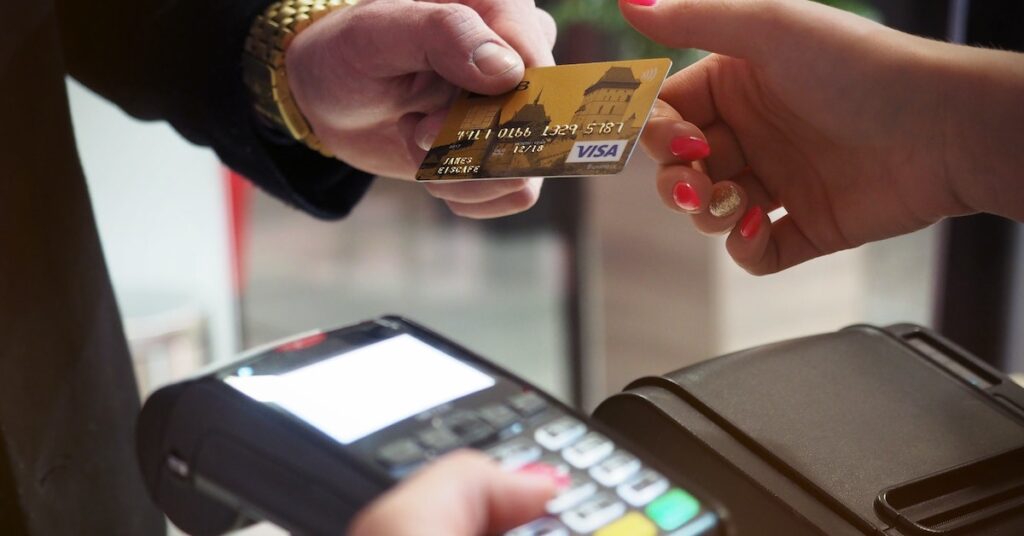
In today’s fast-paced world, financial transactions have evolved tremendously, and credit cards have become integral to our daily lives.
If you’re curious about a credit card and its workings, you’re in the right place.
This article demystifies credit cards, explains their fundamental concepts, and sheds light on how they can impact your financial life.
Table of contents
- Introduction
- What Exactly Is a Credit Card?
- How do Credit Cards work?
- Type of Credit Cards
- Benefits of Using Credit Cards
- Key Terms to Know
- How to Apply for a Credit Card?
- Using Your Credit Card Wisely
- Understanding Interest Rates
- Credit cards vs. Debit cards
- Security Measures for Credit Cards
- Building Credit History with Credit Cards
- Common Misconceptions about Credit Cards
- Conclusion
Introduction
Have you ever wondered how people can make purchases even when they don’t have cash?
That’s where credit cards come into play.
These tiny pieces of plastic have revolutionized how we manage our finances, offering convenience, flexibility, and various benefits.
What Exactly Is a Credit Card?
At its core, a credit card is a financial tool that allows you to take money as a loan from a credit card issuer to make purchases.
Unlike a debit card that draws funds directly from your bank account, a credit card extends a line of credit you can use up to a specific limit.
This borrowing comes with the understanding that you will repay the amount within a specified period, usually every month.
How do Credit Cards work?
Utilizing a credit card resembles acquiring a brief loan; each time you complete a transaction via your credit card, you’re taking out funds from the credit card company.
Your spending can extend to the predefined credit limit established by the card issuer.
You’ll receive a statement detailing your transactions and the minimum amount due at the end of each billing cycle.
You can pay the entire balance or a minimum portion of it. However, not paying the total compensation can lead to interest charges.
Type of Credit Cards

Type of Credit Cards
There are many types of credit cards tailored to different needs.
Some offer rewards like cash back or travel points, while others focus on building credit or providing low-interest rates.
A deposit as a collateral is required for a secured credit card and are ideal for those looking to establish or rebuild credit.
On the other hand, unsecured credit cards don’t need a guarantee and are based on your creditworthiness.
Benefits of Using Credit Cards
There are several advantages of Credit cards, such as convenience, security, and the opportunity to earn rewards.
They eliminate the hassle of carrying large amounts of cash, provide purchase protection, and offer insurance coverage for travel and rentals.
Rewards cards can earn you points, miles, or cash back on eligible purchases, making your spending more rewarding.
Key Terms to Know
Before diving deeper into the credit card world, it’s essential to understand key terms like APR (annual percentage rate), credit limit, billing cycle, minimum payment, and grace period.
Familiarizing yourself with these terms will help you navigate credit card statements and agreements more confidently.
How to Apply for a Credit Card?
Applying for a credit card involves a straightforward process.
You can apply online, in person at a bank or credit union, or even receive pre-approved offers in the mail.
When using, your credit history, income, and other factors will determine your eligibility and credit limit.
It’s essential to compare different options to find the card that suits your needs.
Using Your Credit Card Wisely
While credit cards offer convenience, it’s essential to use them wisely.
Avoid overspending and keep track of your transactions.
Paying your complete and timely balance can help you avoid interest charges and build a positive credit history.
Creating a budget and monitoring your spending are effective strategies for responsible credit card use.
Understanding Interest Rates
Interest rates play a significant role in credit cards.
When you don’t pay your entire balance by the due date, the remaining amount accrues interest, which can quickly add up.
Different interest rates apply, such as the regular APR for purchases and a higher APR for cash advances and balance transfers.
It is wise to choose a card with a lower APR to save you money in the long run.
A Credit card debt can become a financial burden if not managed wisely.
If you are in a situation where your balance is growing, consider creating a repayment plan.
Paying more than the minimum balance and avoiding new purchases can help you chip away at the debt.
If needed, you can explore options like balance transfers or debt consolidation.
Credit cards vs. Debit cards
Well as credit cards and debit cards might look similar, they serve different purposes.
Debit cards as the name indicates are directly linked to your bank account & deduct money from your account, limiting your spending to what’s available.
On the other hand, credit cards allow you to borrow money up to the credit limit.
Always use credit cards responsibly as that might also help you build a positive credit history.
Security Measures for Credit Cards
Credit card companies employ various security measures to protect your account and personal information.
These include EMV chips, two-factor authentication, and fraud monitoring systems.
It’s essential to regularly review your statements, report any unauthorized transactions promptly, and safeguard your card and PIN.
Building Credit History with Credit Cards
Using credit cards responsibly can contribute to building a solid credit history.
Maintaining a low credit utilization ratio & making payments on time can boost your credit score.
A good credit score opens doors to favorable loan terms, lower interest rates, and better financial opportunities.
Common Misconceptions about Credit Cards
Several things could be improved surrounding credit cards.
Some believe that having many cards automatically improves credit scores, but the responsible use of credit matters.
Additionally, carrying a balance doesn’t necessarily help your credit; paying it off in full does.
Understanding these misconceptions is crucial for making informed financial decisions.
Conclusion
In conclusion, credit cards offers a convenient and flexible way to manage your finances and make purchases.
By understanding how they work, their benefits, and the potential pitfalls, you can use credit cards to your advantage while avoiding debt and financial stress.
Frequently Asked Questions:
Yes, you can have multiple credit cards, but managing them responsibly is essential to avoid debt.
Paying more than the minimum balance and focusing on high-interest cards can help you pay off debt faster.
Building good credit takes time, but responsible credit card use can help improve your score over time.
There are lots of credit cards that have annual fees, while others do not. It depends on the type of card and its features.
Immediately contact your credit card issuer to report the loss or theft. They will guide you through canceling the card and issuing a replacement to prevent unauthorized use.
It’s always better to pay the entire balance. Paying the minimum balance can lead to high-interest charges over time.
Yes, credit card can be used for cash withdrawals. However, remember that it usually comes with higher interest rates and fees.
The maximum amount of spend limit on your credit card is known as credit limit of your card. You can request to inrease credit limit, but it’s based on your creditworthiness.
A late payment fees will be charged if you miss a credit card payment and damage your credit score. It’s essential to pay on time to avoid these consequences.
Some credit cards may have hidden fees, such as balance transfers or foreign transaction fees. It’s crucial to read the terms and conditions.

